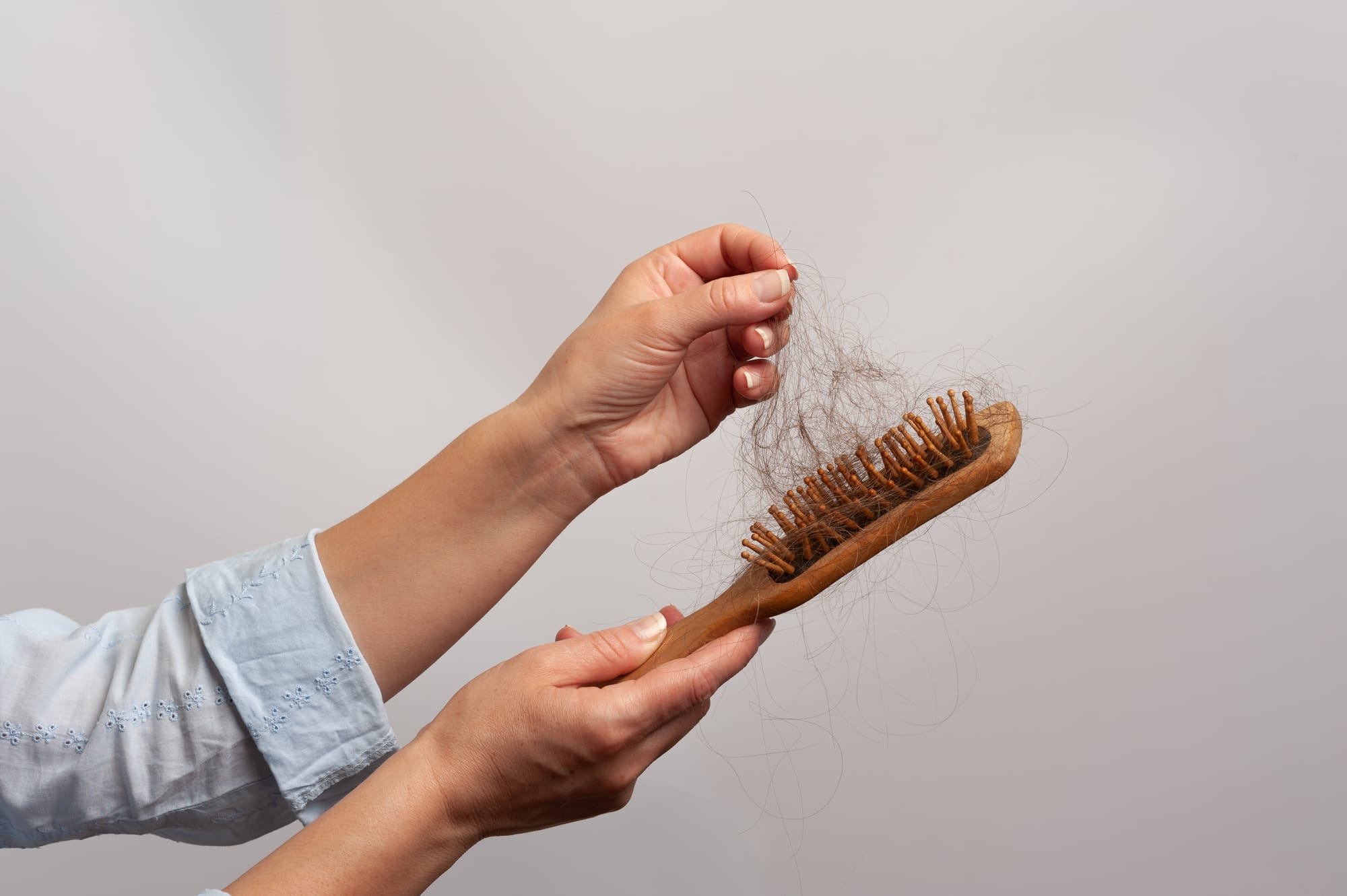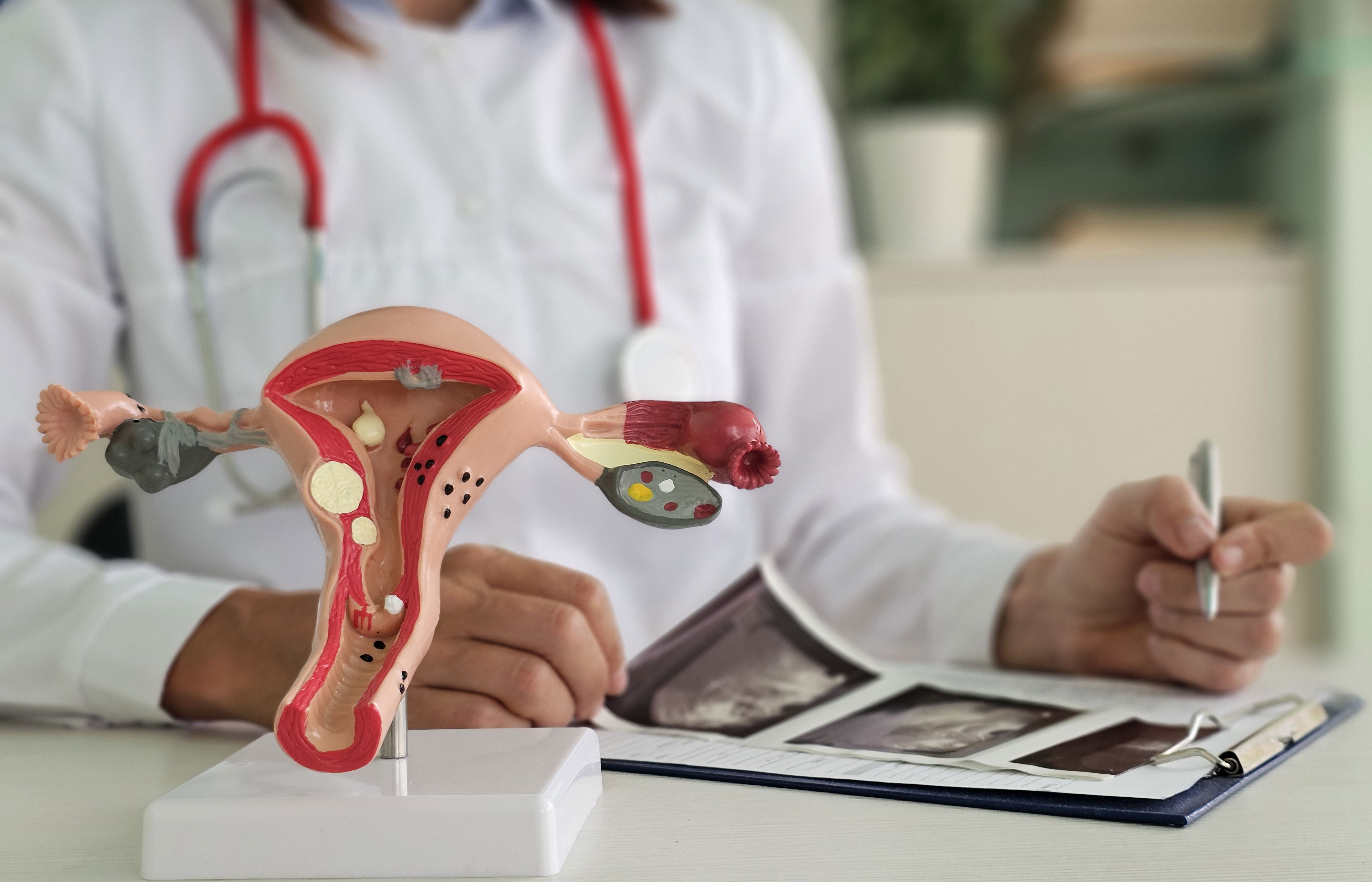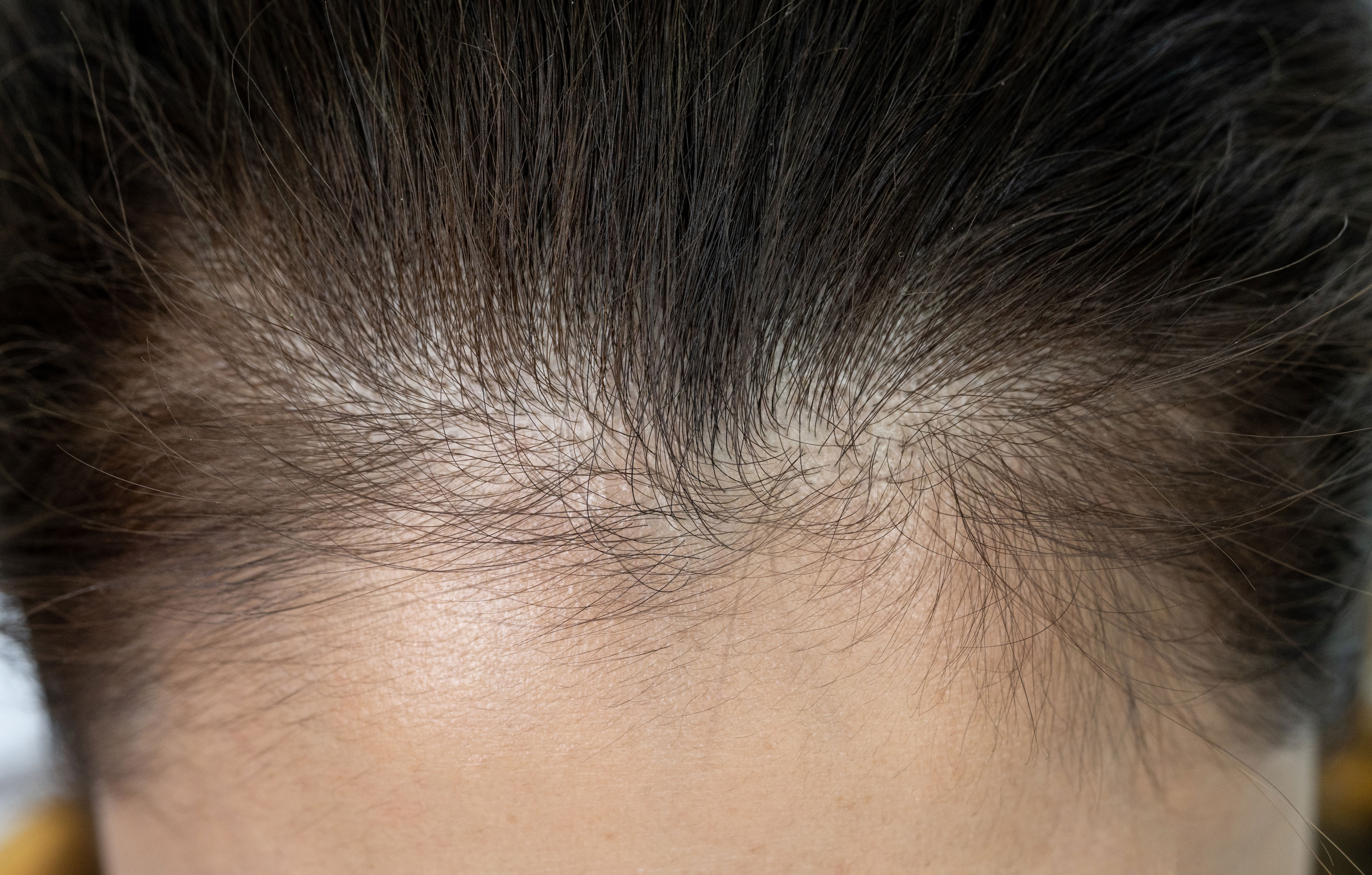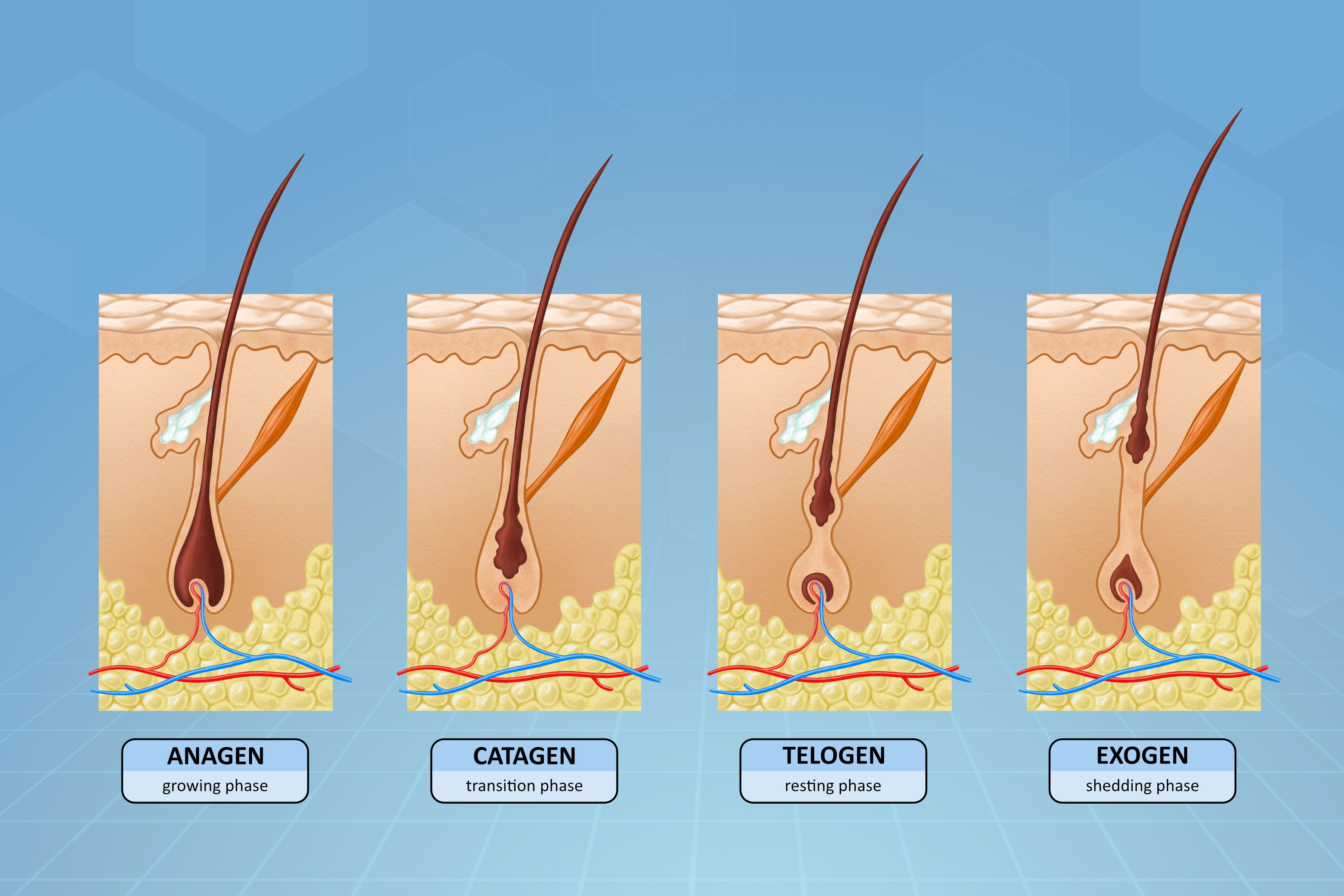Could Endometriosis be causing my Hair Loss?

Endometriosis affects 6-10% of women worldwide, although numbers could be higher.
The Endometrial lining tissue grows outside of the uterus and causes a variety of symptoms.
Whist a gynaecological condition it can contribute to systemic issues such as hair loss. Endometriosis itself do not cause hair loss although hormonal imbalances, inflammation, nutritional deficiencies, and stress can all play a role in hair loss, and if you are an Endometriosis sufferer you may notice you are having problems with your hair growth and/or thickness.

How does Endometriosis affect my hair?
Hormonal imbalances leading to rise in androgens can lead to the onset of Female Pattern Hair loss, a condition that causes diffuse thinning throughout, and noticeable thinning on the top of the scalp and/or temporal areas. Use of DHT blockers, Low Level Laser Treatments, PRP, Peptides, can all help to improve growth.

Hair shedding known as Telogen Effluvium, is where the hairs natural growth cycle is disrupted and forces the hairs to shed too many and too quickly not allowing for full growth, this can be brought on by stress and increase in cortisol. Having Endometriosis may increase your stress levels especially if you are dealing with regular pain.

Medications, operations, Febrile illnesses, blood loss and nutritional deficiencies may also lead to Telogen Effluvium and when you are suffering with a chronic condition these things can all happen in abundance. Treatments include identifying the likely cause, improving nutritional absorption, reducing any inflammation in the scalp, PRP and Peptides can also be useful.
Endometriosis has been linked to an increase in autoimmune disease, making Endometriosis sufferers more likely to develop auto immune conditions such as Alopecia Areata, Lupus, Thyroid disorders, skin conditions like psoriasis. Inflammatory conditions like RA and IBD can also contribute due to inflammation that may present in the scalp.
So while Endometriosis itself is not a cause of hair loss, the presence of any of the comorbidities above are common in suffers.
For more information on how to manage the effects of hair loss speak to a trichologist for advice.